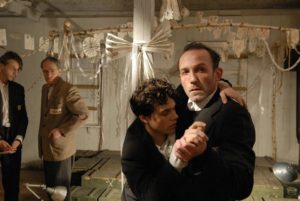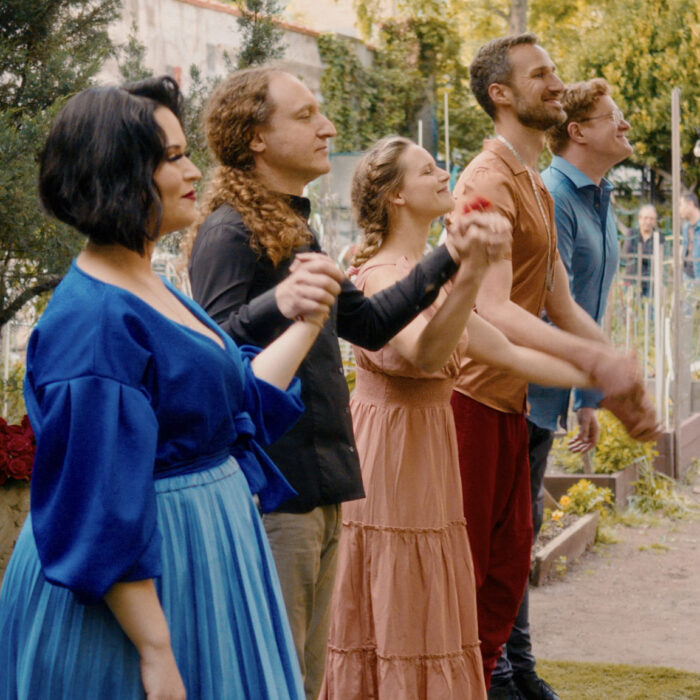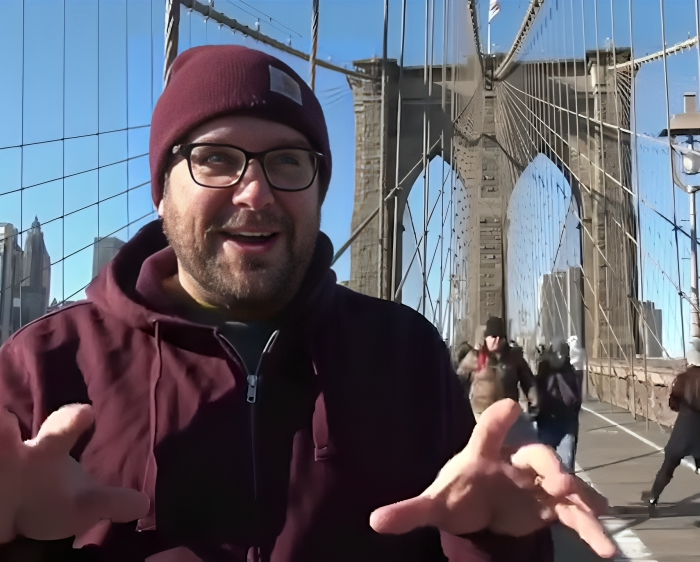
Opera Meets Film: How ‘The Counterfeiters’ Uses Puccini & Operetta Excerpts to Create Emotional Dissonance & Clarity
By David Salazar“Opera Meets Film” is a feature dedicated to exploring the way that opera has been employed in cinema. We will select a film section or a film in its entirety and highlight the impact that utilizing the operatic form or sections from an opera can alter our perception of a film that we are viewing. This week’s installment features the Academy Award winning film “The Counterfeiters.”
Based on the memoirs of holocaust survivor Adolf Burger, the Academy Award-winning “The Counterfeiters” uses music in a rather ironic fashion that both expresses real-life circumstances while allowing filmmaker Stefan Ruzowitzsky the creative license to expose the deeper themes of the story.
Burger, a typographer, was forced into being part of Operation Bernhard, which was the Nazi’s attempt to forge British pounds and American dollars in order to help fund Germany’s war effort. The film presents the revival of the project as led by SS Major Bernhard Krüger, with a focus on Salomon Smoliannoff (renamed Salomon Sorowitsch in the film), as a leader of the counterfeiting scheme.
Krüger purportedly treated the prisoners on the team with politeness and provided them with a number of “luxuries” not afforded to other prisoners in the camp. Among these, were the opportunity to have amateur theatrical performances with music and the like.
In the film, Ruzowitsky explores this aspect through Krüger handing out cigarettes and better clothing to the prisoners. And then there’s the operetta we hear constantly throughout their work on the operation.
Per the film’s own credits, the film uses a variety of excerpts from several operettas from Léhar and Strauss (Adele’s aria from “Die Fledermaus” is particularly notable at one point). For the most part, they are simply background noise, often imperceptible in the other diegetic sounds of the prisoners at work and in conversation. And while we might not be able to make them all out clearly, they remain a background sound that has a rather potent impact on the viewer of the film.
For one – they create a major cognitive dissonance. The cheery quality of these operetta numbers provides a rather direct contrast to the darkness of the situation. Even if these prisoners have it better than others and are able to have a seeming modicum of control over their destinies within the concentration camp, there’s no way the audience can ignore the reality of them being in a concentration camp and the understanding of death happening all around. And yet this constant presence of the music serves as a degree of hope in some ways – of a distant world outside the camp wherein the characters we follow have a potential chance to experience once more.
The film opens on a montage of Sorowitsch alone in Monaco at a casino, gambling away a lot of money. So on some level, knowing full well that the film is told from his perspective, and thus ending in his survival, the music calls us to a more hopeful resolution and keeps this framing device in perspective.
The ending of the film furthers this idea when, after the Nazis flee the camp, the other prisoners find Sorowitsch’s group. One of them remarks that they heard the music and were constantly drawn to it. At this moment, the music’s haunting effect takes on an added meaning furthering the cognitive dissonance and the actual cruelty/hope it created for the prisoners throughout the camp. So how exactly are we meant to feel about this musical choice?
The answer might be in the other prominent opera moment in the film. But there’s more. Ruzowitsky does in fact portray a scene of festivities among the prisoners late in the film with theatrical performances and a musical interlude. The piece of choice? “E luce van le stelle from Puccini’s “Tosca.” One of the prisoners stands on a stage and sings the climactic aria from the famed opera. Of course, this is the same aria that Cavaradossi sings in Act three after he has been tossed in jail by the fascist Baron Scarpia. Cavaradossi is, of course, sentenced to death, and throughout the aria, his thoughts lie with Tosca who he believes he will never see again.
It’s a rather blunt decision from Ruzowitsky to be sure and one might even wonder about its plausibility (even if the Nazis allowed a prisoner to sing opera for them or perform, one might imagine that there were still limits on what was allowed, in order to avoid any potential rebellion or attempts at it), but the choice is clearly aimed at the audience, especially in this moment. For an audience to see the characters enjoying themselves after a hard day’s work would be unsettling, so adding the aria refocuses the moment on the crude reality beneath it all – despite the “fun and games,” these guys are still cognizant of their situation and the fact they are fighting for their lives. There is no complacency here. No false hopes.
And while one can simply explore the aria’s expression in the specific moment of the film when it happens, it must also be examined in the overall context of the film, especially in contrast to the operettas that come before it. The aria also serves as a critique of those other excerpts. Those works are presented in the context of a “pleasant” working environment, but as mentioned, the audience isn’t meant to focus on them; they are a distant blur; a sound effect.
But the “Tosca” aria IS front and center, literally, in the film. Ruzowitsky is telling his audience that this is the true musical expression he wants them to focus on, the true emotions. The others are vapid and fleeting. It sets up the latter operetta segment, a similarly mournful moment, that takes over the non-diegetic soundscape of the work when Sorowitsch, now “free,” carries out a dead prisoner among a landscape of other dead prisoners. The tragedy is finally fully unearthed for the characters and while the audience knows what to expect, in many ways it is the first time Sorowitsch is truly coming to terms with that cruel reality from which he was, in some ways, shielding himself.
This is furthered in the film’s epilogue where we realize he’d taken some of the counterfeit money from the camp and realizes that he wants nothing to do with it any longer. He then gambles it all away and returns to the seaside, where he was at the start of the film.
Categories
Opera Meets Film

